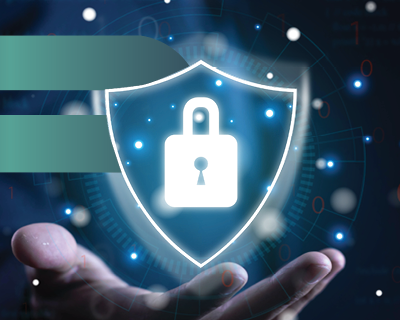How to Get CMMC Certification: A Practical Guide for Defense Contractors

STEAL OUR CMMC LEVEL 2 STRATEGY
The exact roadmap we used to pass our CMMC Level 2 assessment. Download the strategy and use it as your own.
EXPLORE NOW
Every year, cybercriminals and hackers wage digital warfare to gain access to some of our most sensitive personal information. In 2023, there was a 72% increase in data breaches compared to 2021, with the average cost exceeding $4.45 million. While these numbers are striking, they don’t account for the potential exposure of personal and sensitive information – or the leaking of classified government documents.
To address cybersecurity threats within the government sector, the Department of Defense (DoD) regularly increases the security protocols for contractors with access to sensitive government data. Contractors who work with the Defense Industrial Base (DIB) and anyone who receives, shares, sends, or processes Controlled Unclassified Information (CUI) must demonstrate compliance with the Cybersecurity Maturity Model Certification (CMMC).
While CMMC compliance was first introduced in 2020, several updates have since occurred. This practical guide aims to provide defense contractors with a comprehensive understanding of the current CMMC compliance landscape in 2024, including its requirements, levels, costs, and steps to achieve certification.
What Is CMMC Compliance?
CMMC aims to assure the government that contractors and subcontractors meet the cybersecurity requirements for processing, storing, and handling CUI. CMMC requirements are robust, spanning three maturity levels, each introducing a new sophisticated set of cybersecurity practices. Contractors must meet the required standards to handle sensitive information, and to take contracts with the DoD.
What Is CMMC Certification and Who Needs It?
CMMC certification is a formal process in which an organization that works on specific government projects and handles sensitive data must prove that it can adhere to the cybersecurity practices outlined in the CMMC framework.
Defense contractors who wish to bid on or participate in DoD contracts must obtain CMMC certification. This requirement applies to all defense contractors, from small businesses to large enterprises, and anyone handling Federal Contract Information (FCI) or CUI. It also applies to organizations impacted by flow-down requirements. This means that if your organization receives contracts or subcontracts from a prime contractor, the security requirements outlined in those agreements must “flow down” to your organization, making you responsible for ensuring the same level of compliance.
What Are The CMMC Certification Levels?
When CMMC was first introduced, it included five levels of security, each with specific cybersecurity practices and processes. These levels represented a progression in an organization’s maturity in cybersecurity practices.
However, with the latest update of CMMC (Version CMMC 2.0), the previous five levels of security requirements have been consolidated into three levels. These revisions were made to streamline and simplify compliance with CMMC and more closely align with standards laid out in NIST 800-171.
As of the latest updates, the CMMC 2.0 framework includes the following levels:
Level 1 – Foundational
Level 1 focuses on basic safeguarding requirements and involves implementing fundamental cybersecurity practices. It focuses on an annual self-assessment and annual affirmation. It is a “foundational” level, where organizations must implement 17 practices, including access control and physical security measures. This level was designed to establish a baseline for cybersecurity, and the contractors are authorized to handle FCI, which works for those who deal with less sensitive information.
Level 2 – Advanced
Level 2 represents an intermediate level of cybersecurity maturity. It includes all 17 of the required practices from Level 1, with additional expectations to implement all 110 security controls listed in the NIST SP 800-171. At this level, organizations must implement more advanced controls, including incident response and risk management practices. These contractors must also undergo triennial assessments from a certified third party assessment organization (C3PAO).
Level 3 – Expert
Level 3 is the highest level of CMMC certification and involves an in-depth set of cybersecurity practices to protect sensitive information. Organizations must comply with Level 1 and 2 practices, including the expectations listed in both NIST SP 800-171 and NIST SP 800-172. Level 3 requires advanced measures such as continuous monitoring, advanced threat detection, and multi-year government-led assessments.
How Does CMMC 2.0 Differ from the Original CMMC?
CMMC 2.0, introduced as an update to the original CMMC framework, brings several changes and improvements. The key differences include:
- Reduced Levels: CMMC 2.0 consolidated the original five levels into three, simplifying the framework and focusing on critical cybersecurity practices.
- Alignment with NIST: CMMC 2.0 aligns more closely with the NIST cybersecurity standards, particularly NIST SP 800-171.
- Self-Assessment: CMMC 2.0 allows for self-assessment rather than requiring third-party assessment, streamlining the certification process for certain levels.
See this blog for more information on the differences between CMMC 2.0 and CMMC 1.0.
How Long Does It Take To Get CMMC Certified?
Generally, contractors should expect preparation for CMMC certification to take 9-12 months. This timeline will vary based on several factors, mainly the organization’s current cybersecurity standing and the level of certification sought. Working with a Registered Provider Organization (RPO) with extensive experience helping clients in the DIB will help the process move faster. The other primary variable is the scheduling of an assessment with a C3PAO. As of August 2024, there are just 54 assessors that must assess ~80,000 contractors in level 2.
How Much Does CMMC Compliance Cost?
Companies that want to achieve certification face a lengthy and costly process. The cost often stems from businesses that must rebuild their systems to meet CMMC standards. While there isn’t a set expense amount, companies can expect to pay consulting fees, cybersecurity implementation costs, and fees for third-party assessments.
What Are The Consequences of Not Being CMMC Compliant?
Failure to achieve CMMC compliance can have significant consequences, including:
- Loss of contract opportunities: Non-compliant organizations may be ineligible to bid on or participate in DoD contracts.
- Reputational damage: Non-compliance can damage an organization’s reputation and undermine trust with clients and partners.
- Increased risk: Organizations are more vulnerable to cyber threats and data breaches without proper cybersecurity measures.
How Does CMMC Differ from NIST 800-171?
CMMC and NIST 800-171 are related but distinct frameworks. The main difference between these two is that the CMMC is a certification program, and NIST 800-171 is a set of guidelines. CMMC uses NIST 800-171 practices, expands on the requirements, and introduces a certification process to verify compliance. Essentially, NIST 800-171 serves as a baseline while CMMC adds a layer of assurance through third-party assessments.
Will CMMC Replace NIST?
CMMC is not intended to replace NIST standards but rather to complement them. CMMC incorporates NIST 800-171 elements and other standards to create a cybersecurity framework. Both aim to boost cybersecurity measures, and each has its unique requirements.
Can Defense Contractors Self-Certify CMMC?
Under CMMC 2.0, businesses are allowed to self-assess only at Level 1 and in some cases at Level 2. Due to the type of information an organization is working with, most companies will need a Certified Third-Party Assessment Organization (C3PAO) assessment at Level 2, and Level 3 requires a government-led assessment.
What’s the Role of a C3PAO?
A C3PAO is responsible for conducting official assessments of an organization’s cybersecurity practices to determine compliance with CMMC requirements. A C3PAO is trained and certified by the CyberAB (Formerly CMMC AB) to perform and deliver CMMC assessments. CyberAB has an exclusive contract with the DoD and is authorized to serve as the sole CMMC licensing and certification provider for C3PAOs.
What Companies Need To Be CMMC Certified?
Any company in the DIB supply chain that handles FCI or CUI – including both contractors and subcontractors – will need to achieve a CMMC certification level to be eligible for DoD contracts. CMMC requirements are slated to begin appearing in new DoD contracts on November 10, 2025.
Does CMMC Only Apply to DoD?
While CMMC was initially developed for the DoD, its principles and practices may extend to other federal agencies and sectors in the future. For now, compliance is only mandatory for organizations working with the DoD. However, the FAR CUI rule could expand NIST 800-171 security controls to all federal contractors in the not-too-distant future.
How To Get CMMC Compliant
To achieve CMMC compliance, organizations should:
- Familiarize yourself with the specific levels and their requirements and determine which level you need to achieve.
- Evaluate your current cybersecurity practices and perform a gap assessment.
- Establish a plan of action and milestones (POA&M) to address your identified gaps.
- Adopt the necessary cybersecurity practices and processes.
- Document your practices and prepare for an assessment by a C3PAO.
- Complete the certification process and address any feedback from the assessment.
Master CMMC Compliance with ISI
Achieving CMMC compliance is a necessary safeguard for government contractors working with sensitive information. The CMMC framework, with its clearly defined levels and comprehensive guidelines, provides a structured way for defense contractors to enhance their cybersecurity posture.
However, mastering CMMC compliance will be much smoother with the help of experts like IsI. IsI will ensure that your organization is well-prepared to navigate the complexities of this CMMC certification process, securing your place in the defense contracting community. Contact us today to learn more about how ISI can help support your business’s compliance journey.



